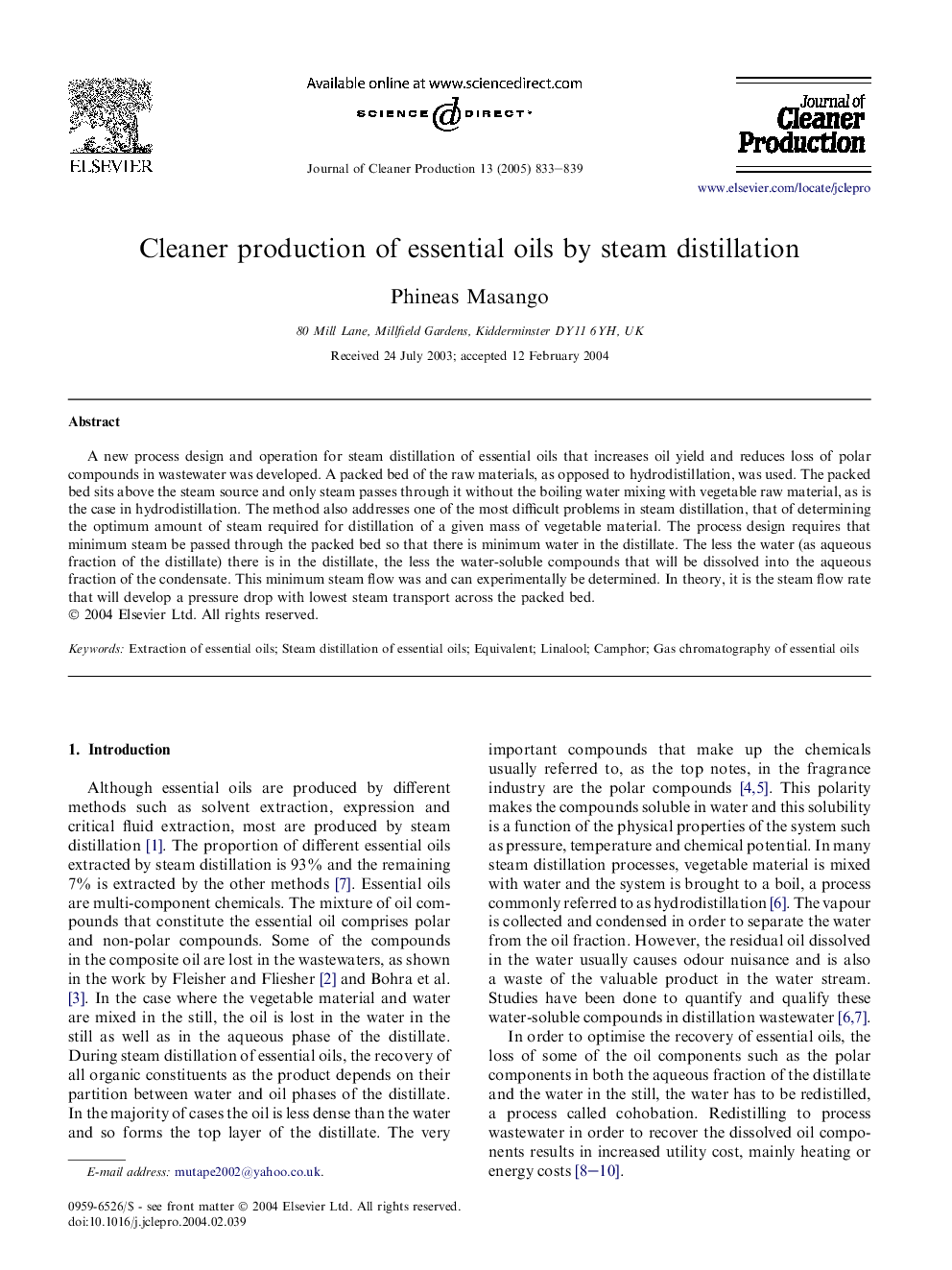| Article ID | Journal | Published Year | Pages | File Type |
|---|---|---|---|---|
| 10688308 | Journal of Cleaner Production | 2005 | 7 Pages |
Abstract
A new process design and operation for steam distillation of essential oils that increases oil yield and reduces loss of polar compounds in wastewater was developed. A packed bed of the raw materials, as opposed to hydrodistillation, was used. The packed bed sits above the steam source and only steam passes through it without the boiling water mixing with vegetable raw material, as is the case in hydrodistillation. The method also addresses one of the most difficult problems in steam distillation, that of determining the optimum amount of steam required for distillation of a given mass of vegetable material. The process design requires that minimum steam be passed through the packed bed so that there is minimum water in the distillate. The less the water (as aqueous fraction of the distillate) there is in the distillate, the less the water-soluble compounds that will be dissolved into the aqueous fraction of the condensate. This minimum steam flow was and can experimentally be determined. In theory, it is the steam flow rate that will develop a pressure drop with lowest steam transport across the packed bed.
Keywords
Related Topics
Physical Sciences and Engineering
Energy
Renewable Energy, Sustainability and the Environment
Authors
Phineas Masango,
